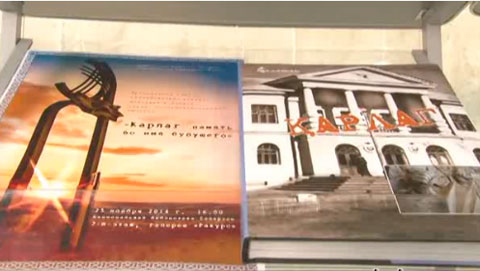Kazakh scientists present project in Minsk on victims of Great Purge
The Minsk-based National Library of Belarus hosted on 25 November a presentation of the research project entitled “Karlag: Remembrance for the Sake of Future”, BelaPAN news agency reports.
The presentation was organized by scientists of the University of Karaganda “Balashak” (Kazakhstan) under an agreement of creative and scientific cooperation with the National Library. In order to contribute to the scientific understanding of the history of Karlag – part of Stalin’s gulags – Karaganda researchers analyzed a lot of documents, archival materials, met with former political prisoners, prisoners of war.
“Belarusian and Kazakh people are united by common historical roots, we lived in the same state,” project manager Nurlan Dulatbekov told BelaPAN. “Although today our countries are independent, nevertheless, political, economic, moral, human relations between us are preserved. Today we present a project that tells about our sad common history. You know that in the Soviet Union there was a huge gulag, and one of its units was the Karaganda camp (Karlag). We are presenting in Minsk our historical essays on Karlag, memoirs, biographical data and a monograph, which is devoted to this problem. Our work is written in three languages – English, Russian, Kazakh – and has been presented in many countries. Today it happens in Belarus, we will present a series of twenty books to the National Library.
Certain individuals have interesting fates. In particular, the wife and daughter of Belarusian poet Todar Kliashtorny, who was arrested in 1937 (shot on October 30, 1937 - BelaPAN), appeared in Karlag. Maya Kliashtornaya was then four, and when they were transported to Kazakhstan, all the prisoners took turns holding her in their arms, so that she would not freeze. About four years ago she came to Kazakhstan and visited the places where she spent her childhood. It was a very emotional meeting, she was received by President Nursultan Nazarbayev.”
“In life and history, there are different points,” said at the ceremony NLB director Raman Matulski. “Of course, we want to remember pleasant things, victories, achievements. But there are tragedies in life, too. Maybe we should not praise these topics and make them the basis of our lives. Yet, we must live in a positive, optimistic environment. But it is necessary to remember, to learn this – so that it never happens again.”


















